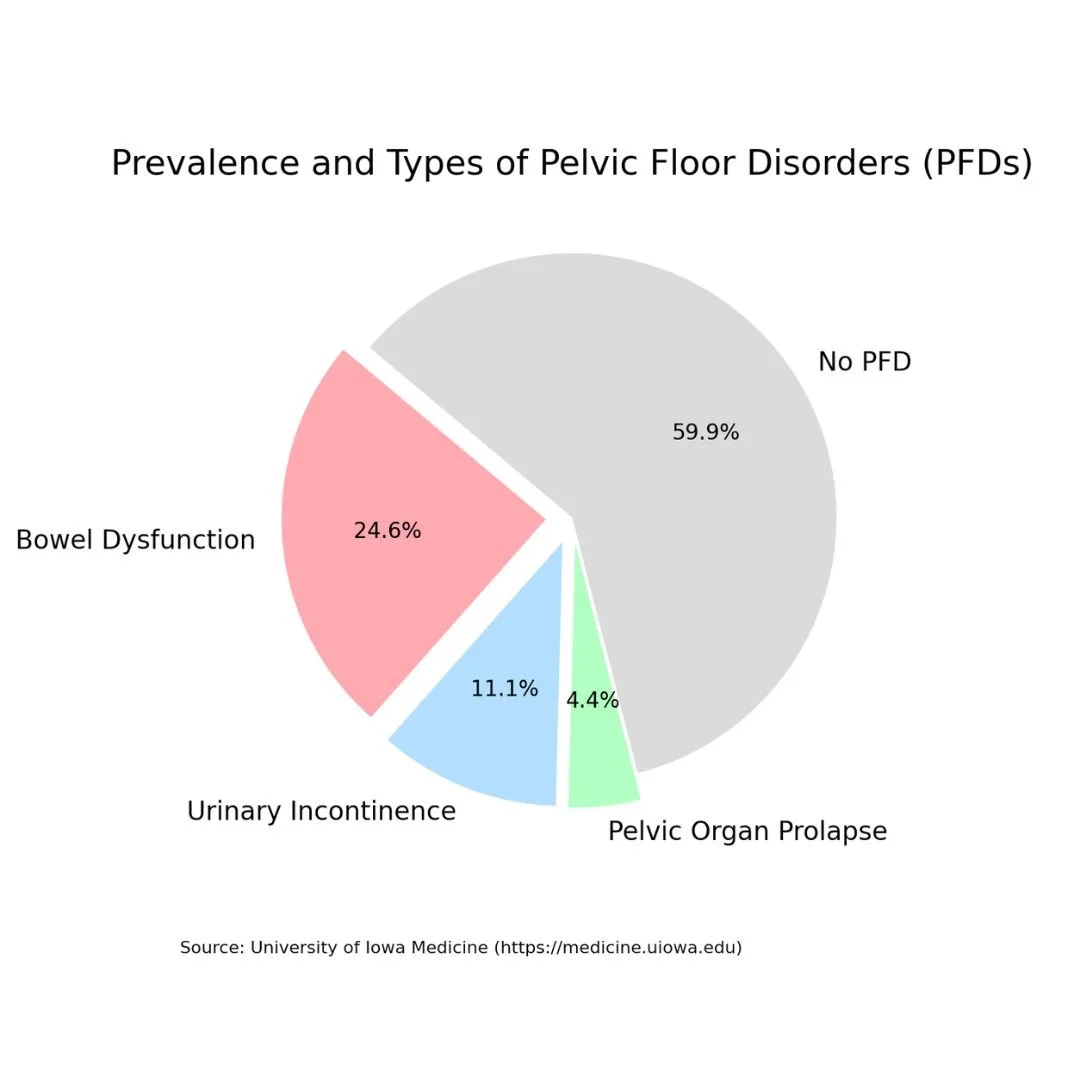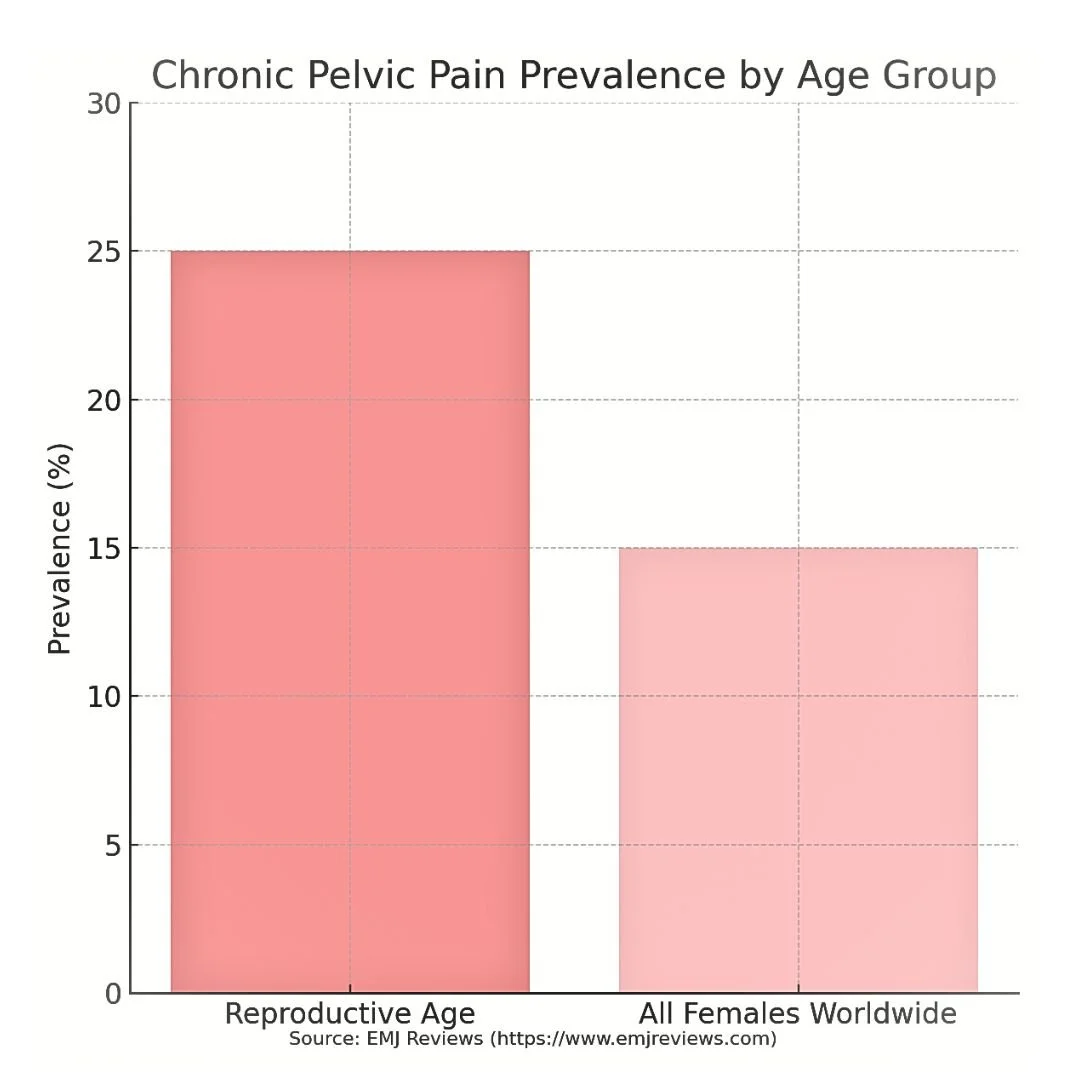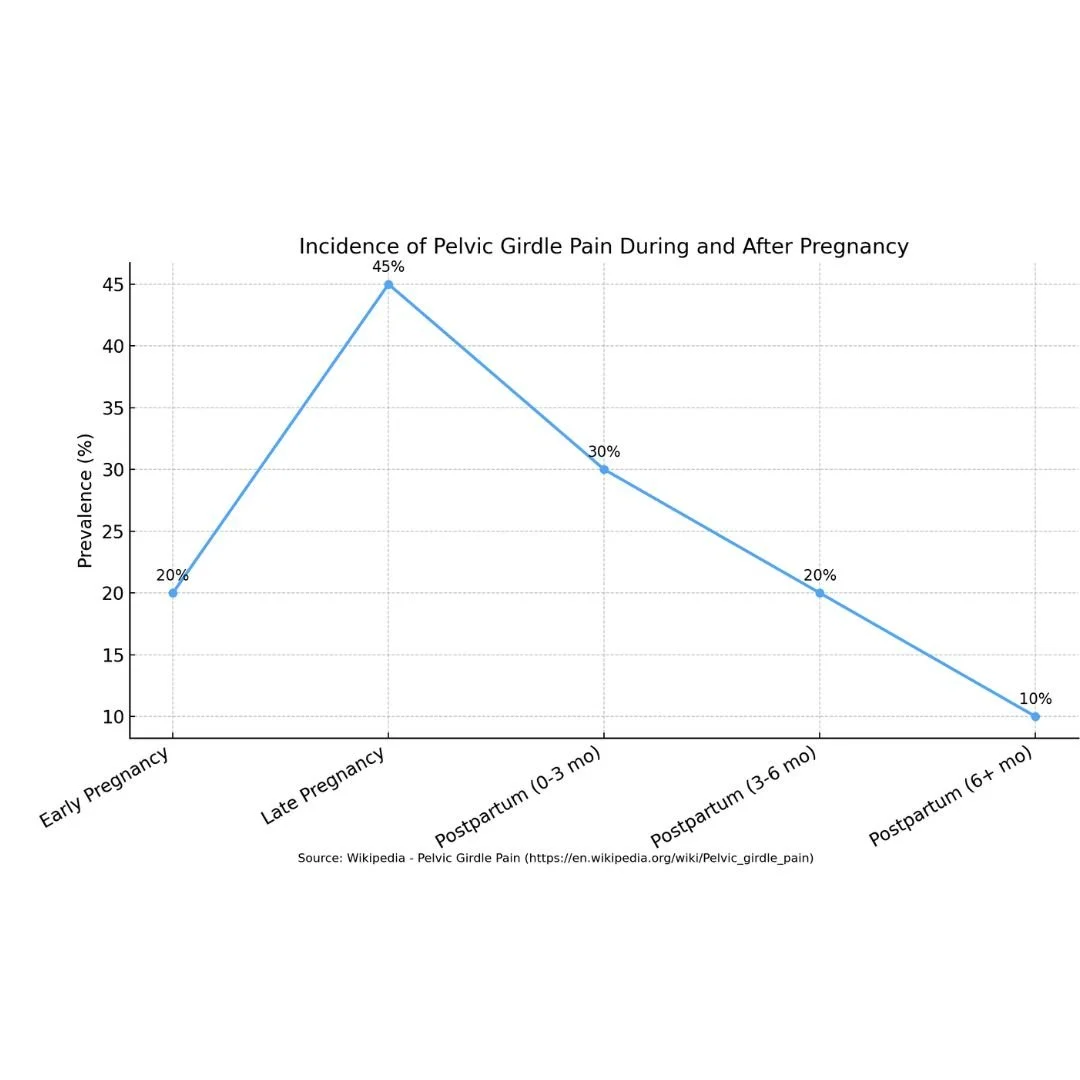Pelvic Floor Health by the Numbers: Why Yearly Checkups Are a Must for Women
Pelvic health is a critical yet under-discussed component of women’s overall well-being. From childbirth to menopause, the pelvic floor plays a key role in bladder control, sexual function, posture, and organ support. However, most women are not screened or educated on pelvic floor dysfunctions until symptoms become disruptive.
This blog uses statistics, charts, and real-world data to explain why annual pelvic floor physiotherapy checkups should be as routine as Pap smears.
The Hidden Prevalence of Pelvic Floor Disorders (PFDs)
Data shows that pelvic floor disorders are more common than most people realize. In fact, over 30% of women experience at least one pelvic floor issue, with bowel dysfunction, incontinence, and pelvic organ prolapse among the most reported conditions.
This pie chart visually shows the distribution:
Bowel dysfunction (24.6%)
Urinary incontinence (11.1%)
Pelvic organ prolapse (4.4%)
No PFD (59.9%)
Key Insight:
Many of these conditions can be identified and managed early with annual physiotherapy screenings.
Chronic Pelvic Pain Is Not “Just in Your Head”
Chronic pelvic pain (CPP) affects up to 25% of reproductive-age women, yet it often goes undiagnosed or misdiagnosed. It can stem from untreated PFDs, endometriosis, or muscular dysfunctions that a pelvic floor physio can assess and treat.
Key Insight:
An annual pelvic floor exam can uncover musculoskeletal contributors to CPP that wouldn’t show up on a typical gynecological scan.
Pregnancy and Postpartum: Where Pelvic Floor Physio Shines
Up to 45% of pregnant women experience pelvic girdle pain (PGP), and it can persist well after birth. Pelvic Floor Physiotherapy is one of the few treatments shown to reduce pain, prepare the body for labour, and speed up postpartum recovery.
Key Insight:
The line chart shows PGP prevalence during pregnancy and across postpartum phases.
Pelvic floor checkups during pregnancy and again 6 weeks postpartum can prevent long-term dysfunction.
Menopause and Pelvic Health: The 75% We Don’t Talk About
Menopause brings hormonal changes that impact pelvic tissues. Genitourinary Syndrome of Menopause (GSM) affects up to 75% of menopausal individuals and can result in dryness, incontinence, and pain.
Key Insight:
A pelvic floor physiotherapist can recommend safe, effective non-hormonal treatments, including muscle training, dilator therapy, and mobility exercises.
Endometriosis: Years of Delay That Could Be Shortened
Endometriosis affects around 10% of the female reproductive population. Many wait an average of 6.7 years to be diagnosed, often after seeing up to 7 different physicians. Pelvic physiotherapists can be key in this process, recognizing signs early and working alongside medical teams to manage pain and improve pelvic mobility.
Annual pelvic assessments can help catch early signs and advocate for faster medical referrals.
The Undiagnosed Majority
Despite the statistics, nearly 96% of those with pelvic floor symptoms remain undiagnosed. Why? Because there’s no standard recommendation for pelvic floor evaluations—yet.
Pelvic floor physiotherapists are trained to assess function, detect dysfunctions early, and prevent progression—often without invasive exams.
Prevention is Better Than Pain
The data is clear: pelvic floor disorders are prevalent, underdiagnosed, and preventable. Whether you’ve had children, are preparing for menopause, or just want to maintain optimal pelvic health, an annual pelvic floor physiotherapy checkup can change the trajectory of your health.
At OVA Women’s Health Physiotherapy in Burnaby, we’ve helped +2000 women overcome pelvic pain, incontinence, postpartum discomfort, and more—with personalized pelvic floor physiotherapy that gets results. Whether you're navigating pregnancy, recovering postpartum, or managing symptoms like pelvic pain or urgency, a comprehensive pelvic floor check-up can make a powerful difference.
Your pelvic floor holds more than just your organs—it holds your potential for comfort, confidence, and control.
If you're in Burnaby or the Lower Mainland, book your pelvic health assessment today with a team that’s trusted, experienced, and here for you at every stage.
Want to Learn More? Explore Our Exclusive Videos and Resources
At Ova Women’s Health, we’re not just here to treat; we’re here to educate. If you’re looking for real answers to complex pelvic health concerns, our content goes beyond what you’ll typically find online.
📲 On our Instagram, we share bite-sized, expert-led videos on everything from pelvic pain and sexual health to topics rarely discussed, like vulvar hygiene, Oral Sex Safety, and jaw-pelvic floor connections.
📺 Our YouTube channel dives even deeper, with practical guidance and empowering education designed to help you understand your body and feel more in control of your health.
We cover the topics that are often ignored or misunderstood, because women deserve better.
Subscribe and follow us to access trusted, evidence-informed content anytime, anywhere.












